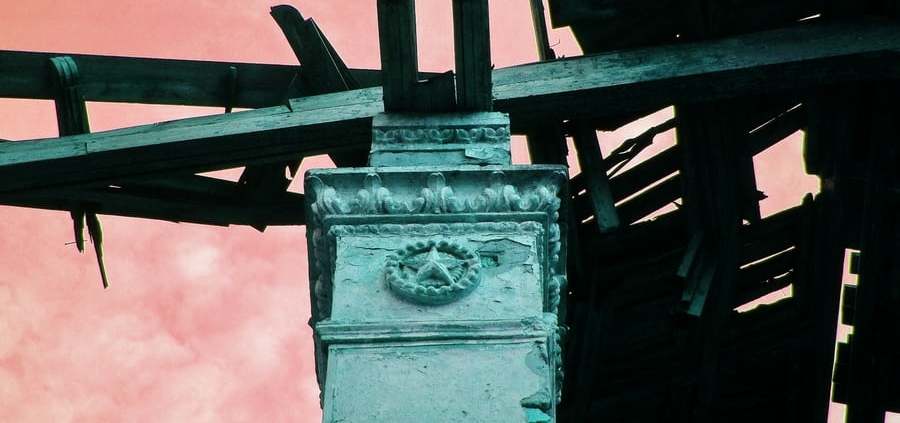When Buildings Collapse
Last year ended with a thud as buildings crumbled. We saw the Champlain tower in Florida flattened. We watched the reporting on Hurricane Ida as homes were destroyed in Louisiana. Perhaps this is a fitting image for these High Holidays. How will you build back?
Rabbi Alan Lew, in his book This is Real, and You Are Completely Unprepared, wrote that the process of teshuvah, repentance, begins with Tisha B’av. In the middle of summer’s hottest days, we stop to mourn the destruction of the temple. The walls were breached, and the temple structure was looted and destroyed. From the low point of Tisha B’av we climb back upon the rubble. We look forward for seven weeks readying ourselves for the High Holidays, thinking about what went wrong to lead to the damage in our lives and how to build back better.
The Hasidic master, Rabbi Shalom Noah Berezovsky offered a powerful parable. The task of a person is like that of a builder who is building a house on a foundation of rubble. Are we willing to clear away the rubble and build on a solid foundation or do we build on an unstable base? If we don’t clear away the rubble, the new structure will be unsteady, develop cracks, and will not endure. You can keep trying to fix the cracks and leaks but eventually, the house will collapse.
Berezovsky offered that we must have the courage to clear away the rubble of our lives and lay strong foundations. Only upon a clean and sturdy foundation, can you establish a strong life. Otherwise, your spiritual life remains always in danger of collapse.
Rosh Hashanah is about having the courage to go deep into ourselves, clear away the Schmutz and establish stronger foundations to build a life of health, happiness, and meaning that can endure.
These issues are personal and global. Do we build back coastal residences that have already dared the environmental forces of wind and water? Do we make efforts to repair the climate damage that plagues our planet, or do we just keep rebuilding with every wave of destruction?
The same is true for us. Foundations built on rubble like our bad habits, constructing emotional barriers to engagement, building wealth as a life’s purpose, and erecting fences through which we lament the world’s problems but stay safely in our homes.
The prophet Zechariah addressed the community returning from Babylon to Eretz Israel, about to rebuild the Temple. He urged them not to make the mistakes of their ancestors, not to build upon that rubble. He called out in God’s name, return to me and I will return to you. Teshuvah is the restoration of relationships.
With each Rosh Hashanah we are reminded that we have an opportunity to rebuild our lives. It begins with the way we are in relationship with ourselves, with our community, and with God. With a foundation of solid relationships, we can build lasting and sturdier lives.
PS. It has been 20 years since the collapse of the world trade centers after an ungodly episode of terrorism. The site was cleared. Pieces of the towers were distributed as memorials. Careful consideration was given to how we rebuild upon sacred rubble. Today, instead of two towers there is one tower and two memorials. The one tower is more beautiful than its predecessor and the site has become a tribute to America’s resiliency. Building for the future mindful of the past. That is a message of Rosh Hashanah.
Rabbi Evan J. Krame






 Evan J. Krame was ordained as a rabbi by the
Evan J. Krame was ordained as a rabbi by the